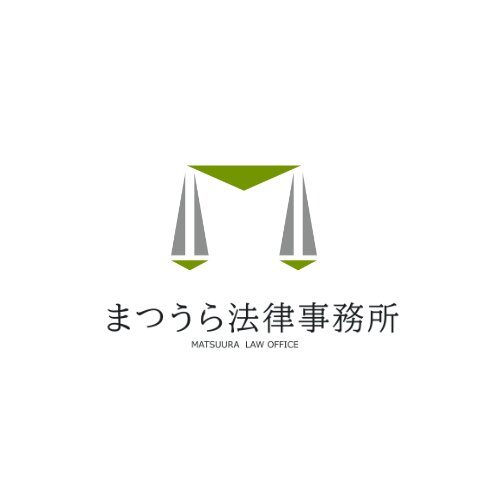Best Estate Planning Lawyers in Japan
Share your needs with us, get contacted by law firms.
Free. Takes 2 min.
Or refine your search by selecting a city:
List of the best lawyers in Japan
About Estate Planning Law in Japan
Estate Planning in Japan involves arranging for the management and disposal of a person's estate during their life and after death. It encompasses various legal tools and financial strategies to ensure that assets are managed and transferred according to the individual's wishes. In Japan, estate planning is particularly significant due to cultural and legal nuances, including inheritance tax considerations and family obligations.
Why You May Need a Lawyer
There are numerous situations where legal assistance in estate planning may be beneficial:
- Complex Family Arrangements: Individuals with multiple heirs, blended families, or children from different marriages may need specialized advice.
- Business Succession: When a family business is involved, legal advice is crucial for smooth transfer and tax efficiency.
- Minimizing Tax Liabilities: Legal professionals can devise strategies to minimize inheritance tax, which can be substantial in Japan.
- Drafting Wills: To ensure clarity and legal validity, professional assistance is recommended when drafting a will.
- Handling Foreign Assets: Owning property or investments abroad can complicate the estate planning process and may require specialized legal knowledge.
- Conflict Resolution: In case of disputes among beneficiaries, an attorney can help mediate and provide solutions compliant with the law.
Local Laws Overview
Key aspects of estate planning law in Japan include:
- Inheritance Tax: Japan has one of the highest inheritance tax rates in the world, and understanding its structure and exemptions is crucial.
- Statutory Heirs: Japanese law defines statutory heirs which often include the spouse and children of the deceased, following a prescribed hierarchy.
- Spousal Rights: The surviving spouse has special rights in terms of inheritance, often receiving a significant portion of the estate.
- Understanding Wills: While wills are not very common in Japan, they can be an essential tool for estate planning, and their validity requires precise adherence to the law.
- Gift Tax: Lifetime gifts are subjected to tax, and strategic planning can help minimize these taxes.
Frequently Asked Questions
What is the inheritance tax rate in Japan?
The inheritance tax rate in Japan is progressive, ranging from 10% to 55% depending on the value of the inherited assets. Exemptions and deductions are available, particularly for spouses and dependents.
Do I need a will in Japan?
While not mandatory, having a will can help ensure your assets are distributed according to your wishes, especially if your family situation does not align with the statutory inheritance laws.
Can foreign nationals create a will in Japan?
Yes, foreign nationals can create a will in Japan, but it's advisable to seek legal advice to ensure it complies with Japanese law and does not conflict with the laws of their home country.
How can I minimize inheritance tax in Japan?
Strategies to minimize inheritance taxes include gifting assets during your lifetime, setting up trusts, or taking advantage of available tax exemptions and deductions. Consulting with a tax professional or estate planning lawyer is essential.
What happens if I die without a will?
If you die without a will, your assets are distributed according to Japan's statutory inheritance laws, which may not align with your personal wishes.
Are there any exemptions to the inheritance tax in Japan?
Yes, certain exemptions apply, such as basic exemption thresholds and deductions for spouses and dependents. Specific circumstances, like being a primary caregiver, can also lead to additional exemptions.
How do statutory heirs affect estate planning?
Statutory heirs have defined shares under Japanese law, affecting how an estate is divided if no will is in place. It's crucial to consider these shares when planning your estate.
Can I transfer my business to my children tax-free?
Transferring a business involves complex tax implications, and while complete tax exemption is unlikely, there are strategies and tools available to reduce taxes.
What is the procedure for contesting a will in Japan?
Contesting a will usually involves legal proceedings in family court, and it requires presenting valid reasons such as undue influence or lack of testamentary capacity.
Is it possible to disinherit a statutory heir in Japan?
Yes, but disinheriting a statutory heir requires explicit provisions in the will accompanied by a valid reason. Legal guidance is essential to ensure the provision is enforceable.
Additional Resources
The following resources can provide further information and assistance:
- The Ministry of Justice in Japan provides guidance on legal matters and procedures regarding wills and inheritance.
- Japan Federation of Bar Associations offers a lawyer referral service.
- Local legal aid offices can provide pro bono consultations for those in financial need.
- Organizations like Tokyo Certified Public Tax Accountants' Association offer advice on tax planning related to estates.
Next Steps
If you require legal assistance in estate planning, consider the following steps:
- Assessment: Gather all relevant documents, including titles, bank holdings, and previous wills, if any, to have a full picture of your estate.
- Research: Look for a qualified estate planning attorney in Japan with experience in handling cases similar to yours.
- Consultation: Schedule a consultation to discuss your needs and expectations, and to understand the process and fees involved.
- Continual Review: Periodically review your estate plan to ensure it remains aligned with any changes in your personal situation or the law.
Lawzana helps you find the best lawyers and law firms in Japan through a curated and pre-screened list of qualified legal professionals. Our platform offers rankings and detailed profiles of attorneys and law firms, allowing you to compare based on practice areas, including Estate Planning, experience, and client feedback.
Each profile includes a description of the firm's areas of practice, client reviews, team members and partners, year of establishment, spoken languages, office locations, contact information, social media presence, and any published articles or resources. Most firms on our platform speak English and are experienced in both local and international legal matters.
Get a quote from top-rated law firms in Japan — quickly, securely, and without unnecessary hassle.
Disclaimer:
The information provided on this page is for general informational purposes only and does not constitute legal advice. While we strive to ensure the accuracy and relevance of the content, legal information may change over time, and interpretations of the law can vary. You should always consult with a qualified legal professional for advice specific to your situation.
We disclaim all liability for actions taken or not taken based on the content of this page. If you believe any information is incorrect or outdated, please contact us, and we will review and update it where appropriate.
Browse estate planning law firms by city in Japan
Refine your search by selecting a city.















